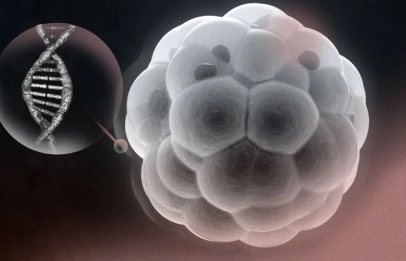In the General population, one in 20 pregnancies may be associated with a birth defect which may range from a minor anatomic defect to a major genetic disorder. Birth defects increase with age and in certain ethnic and racial groups. Pregnant women should undergo prenatal testing to determine if their child is affected by a serious condition such as Down’s syndrome, spina bifida or other abnormalities.
Such screening tests include triple test, NIPT, amniocentesis and CVS. However, these tests cannot prevent a defect; they rather help identifying the disease with little available to treat it. On the contrary, in patients undergoing In Vitro Fertilization, embryos can be tested for abnormal chromosomes and genes before they are transferred to the uterus. This is called preimplantation genetic testing (or PGT).PGT makes it possible for the couple to prevent birth defects in their child. One or more cells from each embryo are tested and only genetically normal embryos are transferred to the uterus.
PGT can be used to test embryos for familial single gene diseases such as Thalassemia, sickle cell disease, cystic fibrosis and muscular dystrophies. The technique is called monogenic preimplantation genetic testing by PCR (PGT-M). It can also be used to test embryos for chromosomal disorders such as Down’s syndrome, recurrent miscarriages, and repeated IVF failures. The technique is called preimplantation genetic testing for aneuploidy (PGT-A). PGT-A can also be used for family balancing and gender selection. A simpler technique called Fluorescent In Situ Hybridization (FISH) can also be used for gender selection and Down’s syndrome exclusion. Other patients who are advised to undergo PGT-A are those with severe oligospermia, Obstructive and non–Obstructive azospermia, advanced maternal or paternal age and previous history of birth defects.
So far, PGT has shown to be safe and doesn’t adversely affect the pregnancy outcome.
Patients desiring to undergo PGT can have fresh embryo transfer or embryo freezing with embryo transfer performed in subsequent cycles. Vitrification freezing doesn’t adversely affect embryos. For more information about PGT, you are encouraged to visit scientific sites such as https://www.reproductivefacts.org/. Book an appointment or e-mail our doctors

